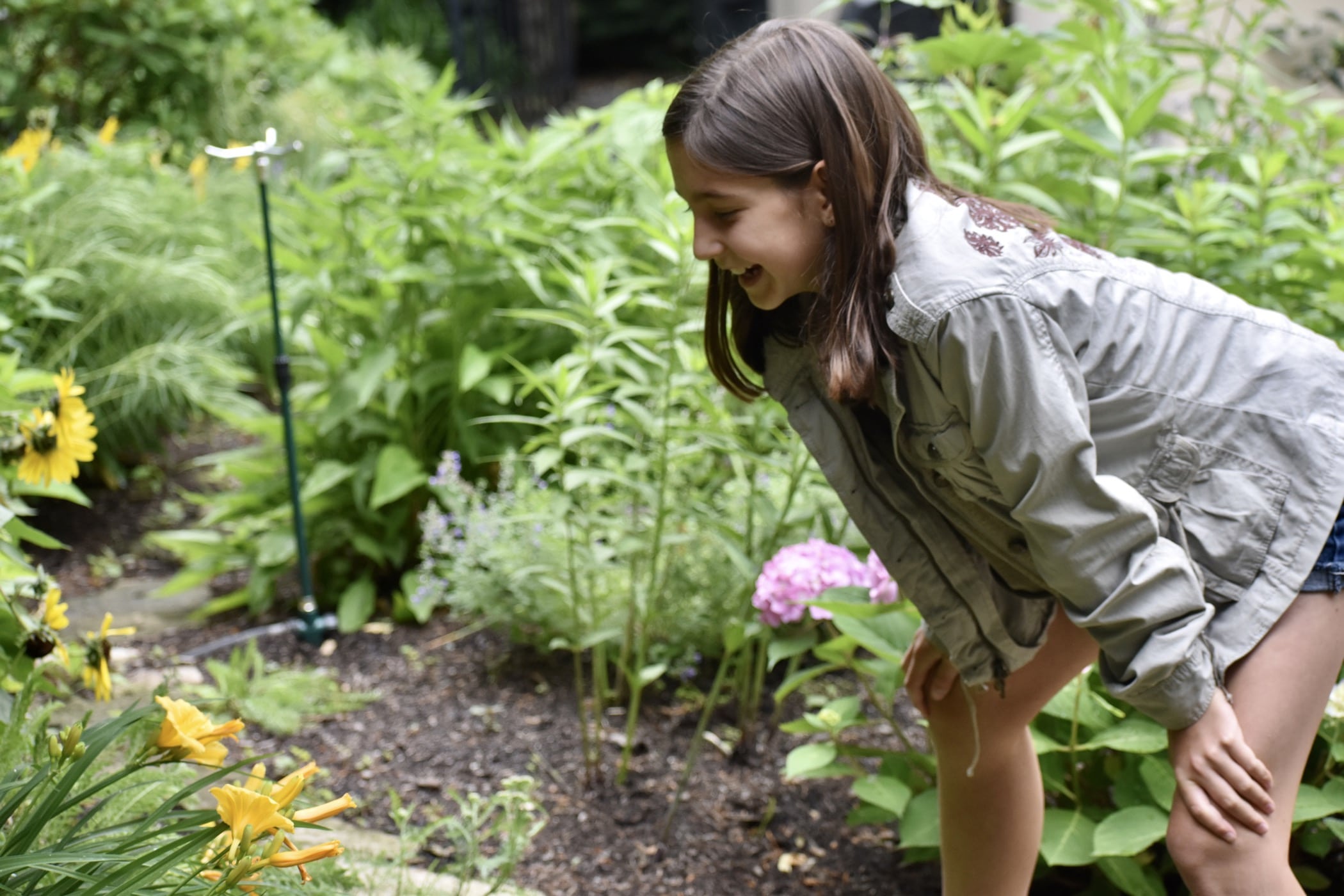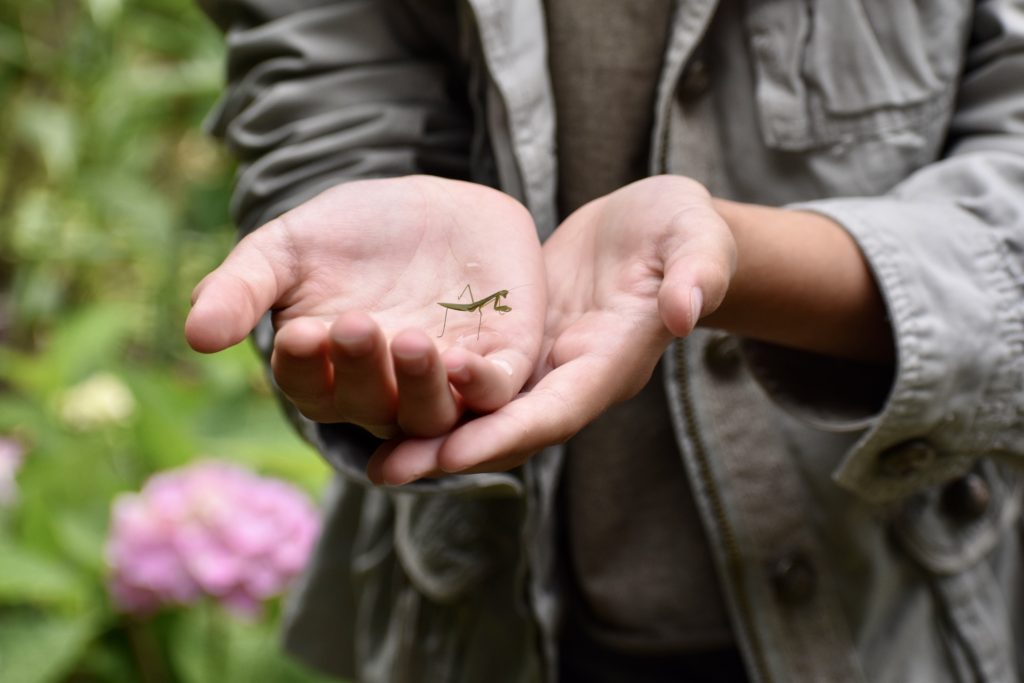
11-year-old Winnetka environmental activist works to pass Bee Bill in Illinois
As the seasons changed in Winnetka, and the flowers bloomed and the sun finally shone in a clear blue sky, 11-year-old Scarlett Harper noticed something was missing from her usual summer environs.
She asked herself, “Where are all of the bees?”
Harper quickly began surfing the web for answers — and the findings stung.
Honeybee populations decline due to natural causes by about five to 10 percent each winter and repopulate each spring to make up for the loss. But since 2006, the honeybee winter death rate has increased between 30 and 50 percent, according to a study conducted by researchers for the U.S. Department of Agriculture.
And from 1947-2019, the amount of honeybee hives in the United States have decreased from approximately 6 million to 2.5 million, according to the U.S. Department of Agriculture’s website.

The U.S. Department of Agriculture determined the decline in bee populations was likely attributable to a wide range of stressors, such as pesticides, effects of climate change and pollinator/crop management practices.
After gathering all of this information and more, Harper took her findings to Rep. Robyn Gabel (D-Evanston) and demanded collaborative action to save the bees.
Gabel didn’t hesitate to act and filed the first draft of House Bill 3118 — known as the “Bee Bill” — by Feb. 18, which would amend the Environmental Protection Act to make it statewide law that “pyrethroid pesticide may only be applied by a commercial applicator for commercial or residential use if an evidence-based model of application complying with specified requirements is used,” according to the Illinois General Assembly’s website.
Pyrethroid pesticide is the chemical used by landscapers to kill insects, especially mosquitoes.
“A company has to find mosquitoes before they can spray,” Harper said. “There has to be low wind speeds to use the chemicals because the chemicals can drift very far, and they can still be killing your bees. And at that point, it’s really hard as a bee or as a colony of bees to find anywhere where you’re really safe. And then for humans, notifying neighbors is another section of the Bee Bill that’s important to (help) keep people safe.”
But through the eyes of private landscaping companies opposed to the bill, pesticide-spraying practices are already regulated by the Illinois Department of Agriculture, and regulations include ensuring pesticide spraying professionals are licensed and qualified to carry out lawful, humane and environmentally-friendly pesticide spraying, according to Scott Grams, executive director of the Illinois Landscape Contractors Association.
“A good question to ask is why are they applying these (pesticides) in the first place?” Grams said. “Mosquitoes pose a public health threat for illnesses like West Nile virus and Lyme disease, which we see in people and pets. … Landscapers are often viewed as being against the environment when our main focus is on what we can do to not increase the risk to public health while saving the pollinators.”
From 2018-2020, there was an average of 48 Illinois counties each year that had humans, birds, mosquitoes and/or horses that tested positive for West Nile virus, according to the Illinois Department of Public Health.
At the same time, honeybees are just one of the many species of pollinators that contribute to the environmental, economic and public health of the United States.
According to the U.S. Department of Agriculture website, “More than 100 U.S. grown crops rely on pollinators. The added revenue to crop production from pollinators is valued at $18 billion. Pollinators also support healthy ecosystems needed for clean air, stable soils and diverse wildlife.”
Because of health risks mosquitoes pose to both humans and the species that inhabit Illinois ecosystems, there will always be tension when making environmental policy decisions because public health concerns run parallel to the environmental health concerns.
“If (Scarlett Harper) keeps on wanting to protect pollinators and bees and butterflies, we’re always going to be on the same side,” Grams said.
As soon as the initial draft of the Bee Bill was filed and assigned to the Illinois House Energy and Environment Committee, Gabel said she faced opposition for many of the same reasons Grams outlined to The Record.
“I started getting calls from the landscapers, started getting calls from the pest control people all with their issues,” Gabel told The Record. “Scarlett and I had meetings with both of these organizations. Then we tweaked the bill, came back to them with another conversation, and they were still unhappy. So, we were not able to come to an agreed bill at that time, and I just kind of ran out of steam. I was 12 bills in and on three working groups and didn’t have the time needed to really work it out because it was a very difficult session during COVID-19.”
Because of the back and forth with opponents, there was not enough time left in the legislative session for Gabel and Harper to address the outstanding to-do’s of the Bee Bill. But for now, the bill is on hold until the January 2022 legislative session, and Gabel is focusing on community outreach.
“We are now spending the summer doing educational programs at various outdoor activities like the farmers markets and the business days where they have sidewalk sales,” Gabel said. “So, we’re going to spend some time, and we’re going to get a sense of what people’s views are on this. And we’ll go back next year and do some more work with the contractors and refile the bill.”
Harper will work alongside Gabel this summer as a volunteer for the 102nd Illinois State House District before she starts seventh grade in the fall.

Harper’s dad, Blake Harper, said his daughter’s success in environmental politics at such a young age is “all her.”
“She just has a comfort with digging in and getting to the facts and a passion that is brought with discipline that you don’t normally see in an 11-year-old,” Blake Harper said. “She really has been self-driven, and we’re really proud of her.”
Because it will be quite some time before the Bee Bill will reach a vote on the Illinois House floor, Harper encourages Illinoians to take action to save the bees through five key steps:
• Change your lifestyle to be more eco-friendly by recycling, using less and donating used clothing instead of throwing it out.
• Join environmental activist groups.
• Donate to environmental groups who advocate for causes you care about.
• Communicate your questions, concerns or comments to state and local governments.
• Never give up.
“It isn’t convenient to live sustainably, but it helps,” Harper said. “When people do it together, it makes a huge difference.”
Editor’s note: This article was updated at 9 p.m. Monday, June 28, with comments from the Illinois Landscape Contractors Association.

Alayne Trinko
Alayne Trinko is an editorial intern who assists the editor-in-chief in reporting hyperlocal news, developing engaging multimedia, and building community trust. Alayne was a staff writer and Focus section editor for The DePaulia, DePaul University’s student-run newspaper. Alayne will be a junior studying journalism this fall and hopes to study abroad to conduct social justice reporting on women’s reproductive health issues in Africa or India in summer 2022. Follow her on Twitter @AlayneTrinko.


